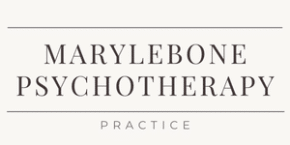Therapy for Love Addiction: Finding Balance in Relationships
Falling in love can be one of the most exciting and life-affirming experiences. But for some people, love takes on an addictive quality. Instead of bringing joy and connection, relationships become a source of anxiety, obsession, and emotional dependence. This pattern is sometimes referred to as love addiction.
Therapy for love addiction offers a safe and supportive way to understand these patterns, heal underlying wounds, and build healthier, more balanced relationships.
What Is Love Addiction?
Love addiction is not about loving “too much” but about feeling emotionally dependent on another person in a way that causes distress. People who struggle with this may:
-
Constantly seek reassurance from partners
-
Feel empty, anxious, or lost when alone
-
Struggle to set boundaries for fear of abandonment
-
Stay in unhealthy or toxic relationships despite recognising the harm
-
Become preoccupied with romantic fantasies or the pursuit of love
This cycle can feel exhausting and disempowering. Therapy helps to break the pattern by exploring its roots and creating space for new ways of relating.
Why Love Can Feel Addictive
Many people who experience love addiction describe relationships as a way to soothe deeper feelings of loneliness, insecurity, or low self-esteem. In this sense, relationships can function much like a substance — offering temporary relief, but ultimately reinforcing dependence.
Attachment theory provides one explanation: early experiences of neglect, inconsistency, or rejection can leave lasting marks on how we connect with others as adults. Therapy for emotional dependence looks at these patterns and helps you to rebuild a sense of safety and self-worth that isn’t reliant on a partner.
How Therapy for Love Addiction Helps
Working with a love addiction therapist or counsellor is not about removing love from your life. It’s about learning to love in a way that feels secure, respectful, and fulfilling. Therapy can help you to:
-
Recognise the cycle of obsession, dependence, and withdrawal in relationships
-
Understand the deeper emotional needs driving these patterns
-
Build self-esteem and confidence in your own identity
-
Develop healthier relationship boundaries
-
Learn to tolerate time alone without fear or panic
Counselling for love addiction is tailored to each individual, focusing on your unique experiences, history, and goals for change.
Therapeutic Approaches to Love Addiction
Different therapeutic approaches can be particularly effective in supporting recovery from love addiction.
Cognitive Behavioural Therapy (CBT)
CBT helps to identify unhelpful thought patterns — for example, “I can’t cope without them” — and replace them with healthier, more balanced beliefs. It also offers practical tools for breaking the cycle of obsessive thoughts.
Psychodynamic Therapy
This approach explores the origins of love addiction. Often, unresolved experiences of loss, abandonment, or unmet emotional needs in childhood influence adult relationships. Psychodynamic therapy provides insight and healing at a deeper level.
Person-Centred Therapy
At its heart, love addiction is often tied to a lack of self-worth. Person-centred therapy provides a supportive, non-judgemental space where clients can begin to accept themselves, independent of a partner’s validation.
Mindfulness and Spiritual Approaches
Mindfulness helps to calm the urge for constant reassurance by focusing on the present moment. For some, incorporating spiritual perspectives can also bring meaning and strength during the process of letting go of unhealthy attachments.
Existential Therapy
Existential work looks at the bigger questions behind love addiction: What does it mean to be alone? How do I find meaning outside of relationships? This approach helps clients confront fears about loneliness and discover freedom in building a purposeful life.
The Emotional Benefits of Counselling
Love addiction can leave people feeling powerless and ashamed. Therapy provides the chance to shift this narrative. Clients often describe benefits such as:
-
Greater emotional stability
-
Increased self-awareness and confidence
-
Healthier relationship patterns
-
More tolerance for independence and solitude
-
A renewed sense of identity outside of relationships
These changes take time, but they create a foundation for relationships that are built on choice rather than dependence.
Relationship Addiction and Breaking the Cycle
Sometimes love addiction is described as relationship addiction because it’s not always about one person, but about being in a relationship itself. The fear of being single can drive people to move quickly from one partner to another, or to stay in situations that are unhealthy.
Therapy provides the opportunity to break this cycle. By working through underlying fears of abandonment and loneliness, you can begin to make relationship choices from a place of strength rather than desperation.
Taking the First Step Toward Therapy for Love
Admitting that love feels addictive can be difficult. Many people worry it sounds dramatic or “too much.” In reality, countless adults struggle with patterns of emotional dependence that leave them feeling anxious, trapped, or unfulfilled.
Reaching out for therapy for love addiction is not about giving up on love. It’s about creating space for relationships that are healthier, more balanced, and truly nourishing.
Rediscovering Yourself Beyond Love Addiction
Love is an important and meaningful part of life, but it should not come at the cost of self-worth or freedom. Therapy for love addiction provides the tools and support needed to rebuild confidence, create healthier relationships, and find meaning in life beyond dependence.
If you are seeking help for love addiction in London, counselling offers a compassionate and non-judgemental space to begin your journey. Working with an experienced psychotherapist, you can explore what drives these patterns and move towards relationships rooted in balance, choice, and genuine connection.

